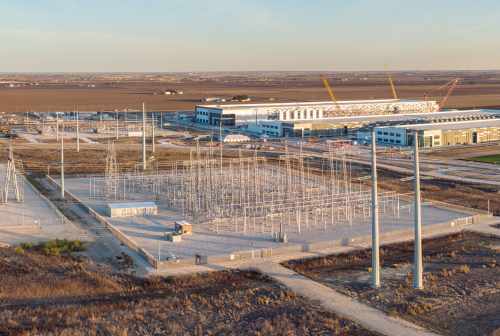DOE launches cyber contest to benefit rural utilities

The Department of Energy is launching a contest for rural utilities to receive $8.9 million in aid for improving defenses against cyberattacks. The Rural and Municipal Utility Advanced Cybersecurity Grant and Technical Assistance Program is intended for utilities with limited resource for cybersecurity defenses, training or in many cases basic staffing.
“Rural electric cooperative, municipal, and small investor-owned utilities carry out a critical economic and national security role in the United States — often with limited resources,” David Crane, under secretary for infrastructure at DOE, said in a statement. “As the Biden-Harris Administration seeks to create a more secure and reliable energy grid and strengthen the economies and quality of life in rural communities across America, it is imperative that the Department of Energy assists our rural utility partners with cybersecurity issues.”
The winning utilities will be chosen for their “commitment to serving their communities” through cyber investments in technology or training, as well as their proposed solutions and ability to see them through, a DOE spokesperson said.
The program announcement comes alongside heightened tensions with China and reports of Beijing infiltrating critical infrastructure in the U.S. Additionally, as President Biden builds out green energy, experts and policymakers have expressed concern that the reliance on Chinese-made equipment could pose a risk to the grid if precautions are not taken.
DOE also announced in July a cybersecurity labeling effort for energy products and systems as a part of the “U.S. Cyber Trust Mark.”
The first stage of the rural utilities contest is the Advanced Cybersecurity Technology (ACT) 1 Prize Program, which will award $7.25 million in cash prizes and up to $1.71 million in technical assistance, according to the program rules.
The competition will have multiple phases where cash money and technical assistance will be awarded at the end of each phase. The first phase is “commitment” where utilities describe the resources needed to improve their digital defenses while committing to the ACT 1 Prize Program.
The second phase is “planning” where utilities complete assessments and identify potential solutions and the third phase is “implementation” of those solutions.
The deadline for the first phase is Nov. 29.
The contest is not for utilities that have mature cybersecurity programs. In fact, if a utility has a cybersecurity program in place they are unlikely to win the prize money, according to the program rules. Utilities that are eligible are those with limited resources, own assets that are critical for the bulk power system, or own defense critical electric infrastructure.
The funding comes from the bipartisan infrastructure law and authorizes $250 million over a five years for rural utilities. And once a utility wins a prize, they can determine how to use the funding without any particular commitments to DOE, according to the program rules.
Additionally, the RMUC program will host six three-day cybersecurity trainings on industrial control systems and operational technology alongside the Idaho National Laboratory in multiple major cities in the U.S.
A DOE spokesperson said that the RMUC program expects to release an additional competitive grant program next year.
Other DOE funding efforts for rural utilities include DOE’s Office of Cybersecurity, Energy Security, and Emergency Response state, local, tribal and territorial program and the Office of Clean Energy Demonstration’s energy improvements in remote areas program. Additionally, the Department of Agriculture has a rural utility service as well.






